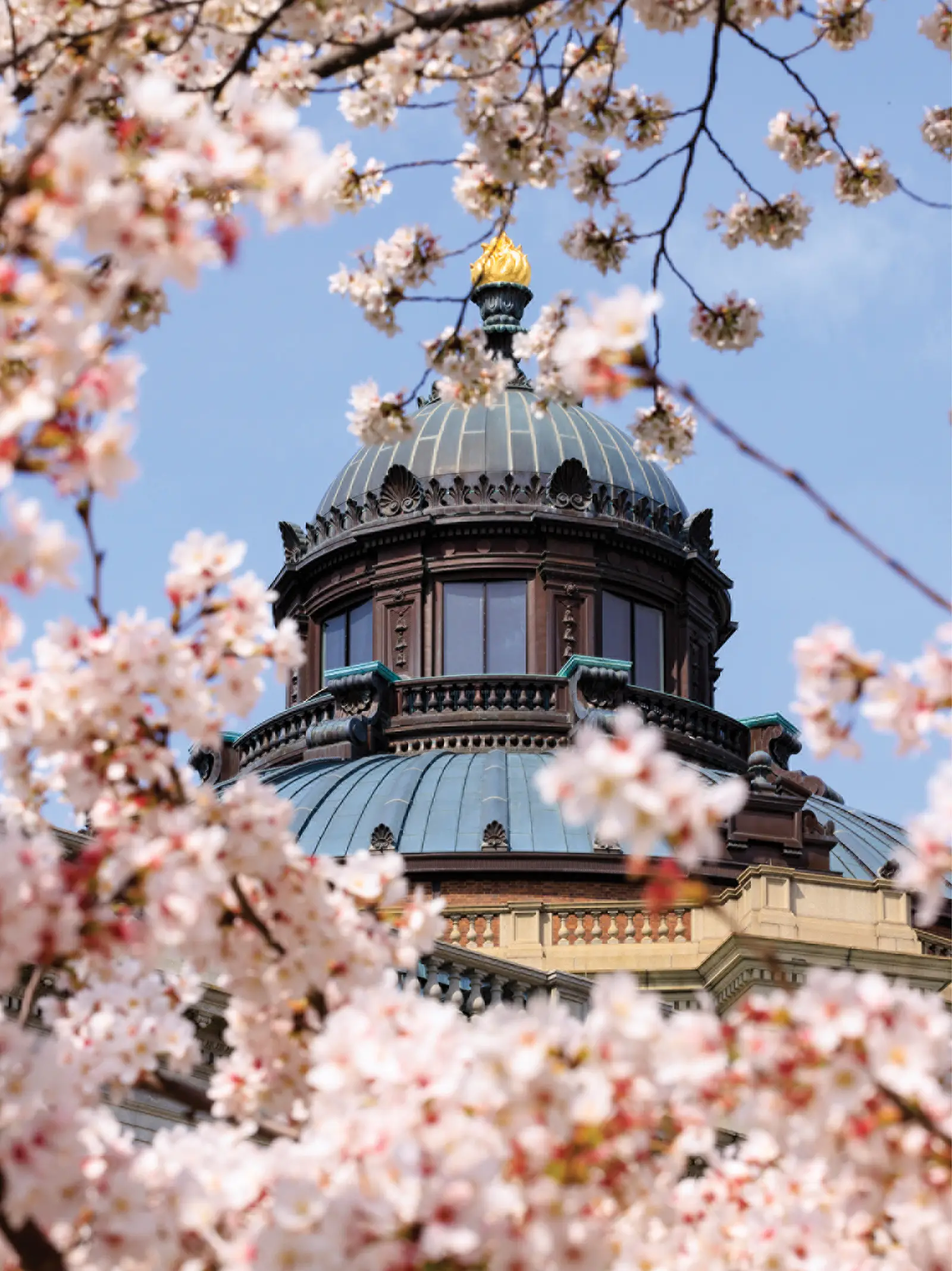
In bloom
Come April, the U.S. Capitol campus flowers into color and life. Tulips, crocuses and daffodils bloom. Dogwood, magnolia and cherry blossoms fill the horizon, whichever way you turn. Down at the Capitol reflecting pool, ducklings paddle busily around their mothers.
Visitors, glad to finally shed layers of winter wear, arrive in larger numbers. They stroll the wide walkways, looking for the perfect spot to snap the perfect photo: the Capitol dome framed by blossoms.
Unbeknownst to most passersby, the campus’ trees often hold special meaning.
A swamp white oak on the southwest grounds memorializes lives lost in the Sept. 11 terrorist attacks. An American sycamore commemorates Emmett Till, the young African American whose killing in 1955 helped galvanize the civil rights movement. Five Japanese flowering crabapples honor the five Sullivan brothers, all of whom served aboard the USS Juneau in World War II, all of whom were killed when the ship was torpedoed and sunk in 1942.
A favorite tree stands — or, rather, leans precipitously — at the southeast corner of the Library’s Jefferson Building. The yoshino cherry is one of over 3,000 such trees given by the city of Tokyo to Washington, D.C., in 1912 as a token of friendship.
The tree has seen many seasons — and many generations of Library workers — come and go. Now, deep into old age, it rests heavily upon a wooden crutch, its gnarled trunk nearly parallel to the ground. Still, it produces masses of pinkish-white blooms — a welcome sign that spring has returned and that, as the years pass by, some things remain beautifully the same.